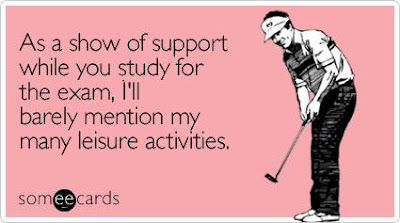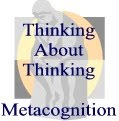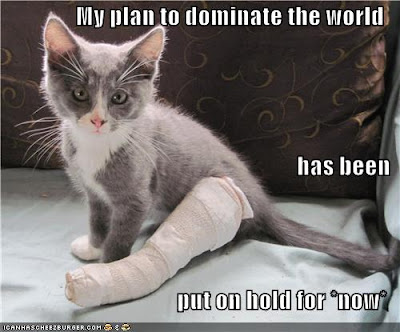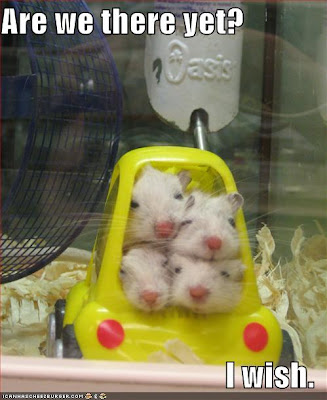Monday, December 20, 2010
WHY BAD?!?
Wednesday, December 15, 2010
Open-Mindedness
I like the definition of open-mindedness offered by this video: it is being open to new evidence. This brings with it a willingness to change your mind... but only if new evidence warrants such a change.
Changing your mind has gotten a bum rap lately: flip-flopping can kill a political career. But willingness to change your mind is an important intellectual virtue that is valued by scientists.
Tuesday, December 14, 2010
Final Exam

Monday, December 13, 2010
Intellectual Humility
Getting us to care is the real goal. We should care about good evidence. We should care about evidence and arguments because they get us closer to the truth. When we judge an argument to be overall good, THE POWER OF LOGIC COMPELS US to believe the conclusion. If we are presented with decent evidence for some claim, but still stubbornly disagree with this claim for no strong reason, we are just being irrational. Worse, we’re effectively saying that the truth doesn’t matter to us.
Instead of resisting, we should be open-minded. We should be willing to challenge ourselves--seriously challenge ourselves--and allow new evidence change our current beliefs if it warrants it. We should be open to the possibility that we’ve currently gotten something wrong. This is how comedian Todd Glass puts it:
Here are the first two paragraphs of an interesting article on this:
Last week, I jokingly asked a health club acquaintance whether he would change his mind about his choice for president if presented with sufficient facts that contradicted his present beliefs. He responded with utter confidence. “Absolutely not,” he said. “No new facts will change my mind because I know that these facts are correct.”
I was floored. In his brief rebuttal, he blindly demonstrated overconfidence in his own ideas and the inability to consider how new facts might alter a presently cherished opinion. Worse, he seemed unaware of how irrational his response might appear to others. It’s clear, I thought, that carefully constructed arguments and presentation of irrefutable evidence will not change this man’s mind.
Ironically, having extreme confidence in oneself is often a sign of ignorance. Remember, in many cases, such stubborn certainty is unwarranted.
Sunday, December 12, 2010
Metacognition
 There's a name for all the studying of our natural thinking styles we've been doing in class lately: metacognition. When we think about the ways we think, we can vastly improve our learning abilities. This is what the Owning Our Ignorance club is about.
There's a name for all the studying of our natural thinking styles we've been doing in class lately: metacognition. When we think about the ways we think, we can vastly improve our learning abilities. This is what the Owning Our Ignorance club is about.I think this is the most valuable concept we're learning all semester. So if you read any links, I hope it's these two:
Saturday, December 11, 2010
Practical Advice
Here are two other big, simple points I think make for some great practical advice:
- A
 ctively seek out sources that you disagree with. We tend to surround ourselves with like-minded people and consume like-minded media. This hurts our chances of discovering that we've made a mistake. In effect, it puts up a wall of rationalization around our preexisting beliefs to protect them from any countervailing evidence.
ctively seek out sources that you disagree with. We tend to surround ourselves with like-minded people and consume like-minded media. This hurts our chances of discovering that we've made a mistake. In effect, it puts up a wall of rationalization around our preexisting beliefs to protect them from any countervailing evidence. - When we do check out our opponents, it tends to be the obviously fallacious straw men rather than sophisticated sources that could legitimately challenge our beliefs. But this is bad! We should focus on the best points in the arguments against what you believe. Our opponents' good points are worth more attention than their obviously bad points. Yet we often focus on their mistakes rather than the reasons that hurt our case the most.
Friday, December 10, 2010
Status Quo Bias
- If it already exists, we assume it's good.
- Our mind works like a computer that depends on cached responses to thoughtlessly complete common patterns.
- NYU psychologist John Jost does a lot of work on that thing I asked you to look up for extra credit: system justification theory. This is our tendency to unconsciously rationalize the status quo, especially unjust social institutions. Scarily, those of us oppressed by such institutions have a stronger tendency to justify their existence.
- Jost has a new book on this stuff. Here's a video dialogue about his research:
Thursday, December 9, 2010
Homework: Rational Life Plan
- A list of things you value (such as your family, creativity, your grades, health, etc.)...
...along with an explanation of why each of these things are important to you. - A hierarchy of goals (from most important to least important) that you'd like to accomplish in the future.
- A set of specific plans on how and when you'd like to accomplish these goals.

Wednesday, December 8, 2010
Course Evaluations
1. Go to http://www.rowan.edu/selfservice.
2. Click "Access Banner Services - Secure Area - login Required."
3. Enter User ID and PIN.
4. Click "Personal Information."
5. Click "Answer a Survey."
6. Click on one of the student evaluations for your classes.
7. Complete the student evaluation.
8. Click “Survey Complete” to submit your completed student evaluation.
9. Repeat for other classes.
Tuesday, December 7, 2010
Let's All Nonconform Together
- On the influence of your in-groups and the formation of your identity: "If you want to set yourself apart from other people, you have to do things that are arbitrary, and believe things that are false." (from Paul Graham's "Lies We Tell Our Kids.")
- Here's a summary of two recent studies which suggest that partisan mindset stems from a feeling of moral superiority.
- Here's that poll showing the Republican-Democrat switcharoo regarding their opinion of Fed Chairman Ben Bernanke when the executive office changed parties.
- Our political loyalties also influence our view on the economy.
- Here's an article about a cool study on the relationship between risk and provincialism.
- Conformity hurts the advancement of science.

Monday, December 6, 2010
Wished Pots Never Boil
- If you're a fan of The Secret, you should beware that it's basic message is wishful thinking run amok.
- Teachers have biases, too: we're self-serving and play favorites.
- Why don't we give more aid to those in need? Psychological impediments are at least partly to blame.
- Why do we believe medical myths (like "vitamin C cures the common cold," or "you should drink 8 glasses of water a day")? Psychological impediments, of course!
